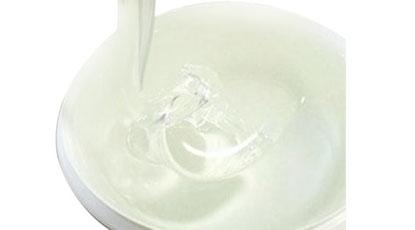ALLULOSE
Model No.︰-
Brand Name︰SAIGAO
Country of Origin︰China
Unit Price︰CNY ¥ 4 / pc
Minimum Order︰25 pc
Product Description
Allulose is a rare sugar with the same chemical formula as fructose. Because it isn't metabolized by the body, it does not raise blood sugar or insulin levels and provides minimal calories. Allulose, as a new type of new sweetener allulose, has been on the list of weight loss allulose ingredion and become a popular food ingredient in the market nowadays.
SAIGAO Allulose List
Allulose Powder
Allulose is a kind of rare sugar in nature. It is not easy to be metabolized by human body after eating. It has no energy and no corrosion.
Allulose Syrup
Allulose is a kind of rare sugar in nature. It is not easy to be metabolized by human body after eating. It has no energy and no corrosion.
Allulose Physiological Function
Allulose is also known as D-psicose. It is classified as a "rare sugar" because it is naturally present in only a few foods. Wheat, figs and raisins all contain it. Like glucose and fructose, allulose is a monosaccharide, or single sugar. In contrast, table sugar, also known as sucrose, is a disaccharide made of glucose and fructose joined together.
According to allulose manufacturers, allulose has the same chemical formula as fructose, but is arranged differently. This difference in structure prevents your body from processing allulose the way it processes fructose. In most cases, foods with allulose enjoy a higher popularity among people because they are considered safer and healthier.
Although 70–84% of the allulose you consume is absorbed into your blood from your digestive tract, it is eliminated in the urine without being used as fuel .
Allulose been shown to resist fermentation by your gut bacteria, minimizing the likelihood of bloating, gas or other digestive problems .
How does sugar alcohol affect diabetes? Some good news for people who have diabetes or are watching their blood sugar — it does not raise blood sugar or insulin levels.
Early research suggests that allulose has anti-inflammatory properties, and may help prevent obesity and reduce the risk of chronic disease.
Allulose-FAQs
Does Allulose have side effects?
People reported abdominal side effects when consuming increasing doses of allulose, including: bloating. abdominal pain. diarrhea.
How safe is allulose?
Allulose seems to be a safe sweetener. It has been added to the list of foods generally recognized as safe (GRAS) by the US Food and Drug Administration.
Is Allulose the same as erythritol?
Allulose is similar to erythritol because it is primarily absorbed into the blood stream and it does not raise blood glucose or insulin.
Is Allulose better than stevia?
Perhaps most importantly, allulose has no aftertaste, boasts the same mouthfeel as sugar and can participate in maillard and is highly soluble — delivering all of the functional benefits of sugar with fewer drawbacks. Price wise, it's less expensive than both stevia and monk fruit.
Does Allulose cause digestive problems?
Eating a large amount of allulose may cause digestive discomfort, but there are few other known side effects. The FDA has approved other sugar substitutes, such as stevia, aspartame, and sucralose, as safe when used in moderation.
Is Allulose a sugar alcohol?
Unlike “all natural” low-carb sweeteners like “sugar alcohols,” allulose doesn't have that not-so-pleasant side-effect of gas and bloating because 70 percent of it is actually excreted through your urine, according to a study from Japan's Matsutani Chemical Industry.
Is Allulose all natural?
Allulose is naturally present in small quantities in a variety of sweet foods like caramel sauce, maple syrup and brown sugar. A monosaccharide, or simple sugar, allulose nutrition is absorbed by the body, but not metabolized so it is nearly calorie-free.
What is a substitute for Allulose?
Allulose is a type of sugar that is found naturally in certain foods. Other sugar substitutes that people use include: stevia. aspartame. saccharine
What does Allulose taste like?
Allulose is one of the newest low-calorie sweeteners on the market. With the same taste and texture of sugar, and no after taste, it's rising in popularity. Allulose is considered a “rare sugar” because it's naturally found in small amounts in a limited number of foods, like figs, wheat, and raisins.
Can Allulose give you diarrhea?
Possible side effects People reported abdominal side effects when consuming increasing doses of allulose, including: bloating. abdominal pain. diarrhea.
Saigao is a professional food additives manufacturer, we provide best allulose, functional sugar and etc. We have allulose for sale, want to allulose wholesale, please contact us.
Payment Terms︰ T/T
Product Image

